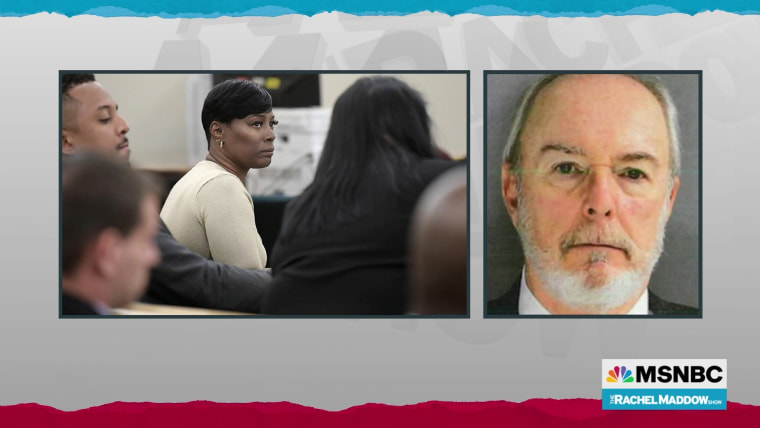In the wake of Donald Trump's defeat six months ago, Republicans launched a desperate search for illegally cast ballots to help justify the GOP's conspiracy theories. But despite all the hysterical rhetoric, only a handful of legitimate allegations have been raised, and some involve Republicans casting illegal ballots for Trump on behalf of dead relatives.
Take Bruce Bartman, for example. The Washington Post reported this morning:
Weeks before Election Day, Bruce Bartman mailed his mother's absentee ballot with a check mark next to President Donald Trump's name. The problem was, his mother had been dead since 2008. Bartman, 70, pleaded guilty on Friday to a charge of felony perjury and unlawful voting — and blamed his decision to cast the fraudulent ballot on consuming too many false claims about the election.
Expressing regret for his crime, the Pennsylvanian conceded, "I listened to too much propaganda and made a stupid mistake."
A local judge reminded Bartman that his crime "goes to the heart of our democracy," before sentencing the defendant to five years' probation.
The Post's report added, "In addition to Bartman, two other men in Pennsylvania face charges of fraudulently voting for Trump, according to the [Philadelphia] Inquirer. Ralph Thurman of Chester County allegedly tried to cast his son's vote and Richard Lynn of Luzerne County allegedly attempted to obtain an absentee ballot for his deceased mother. Both cases are pending."
My first thought after seeing this news was to remember the case of Crystal Mason, who cast a provisional ballot in the 2016 while on supervised release for a federal conviction. She didn't know she was ineligible to vote, and her ballot was never counted, but Mason -- a Black woman -- was convicted of illegal voting and sentenced to five years in prison.
It's hard not to notice that Bruce Bartman -- a White man -- received a far more lenient sentence.
My second thought after seeing the report out of Pennsylvania was the expectation of Republicans seizing on the news. "See?" I assume they'll say. "Voter fraud is real after all, which means sweeping new voter-suppression laws are fully justified."
That's clearly the wrong response. What the Bartman story actually helps show is that fraud is extremely rare, and when would-be criminals try to cheat, the existing system is strong enough to catch them, charge them, and convict them. This doesn't prove the need for voter-suppression laws; it helps prove the opposite.
But as important as these details are, let's also not forget a related question: Wasn't a reward offered for this kind of information?
A couple of days after Joe Biden was declared the president-elect, Texas Lt. Gov. Dan Patrick (R) announced that he'd be willing to pay up to $1 million as a reward to those who could produce proof of voter fraud.
At the outset, this appeared to be unwise. As we've discussed, the Texas Republican was effectively arguing that he and his party assumed there was widespread fraud, but they couldn't prove it, so he hoped financial rewards would produce evidence Republicans couldn't find on their own. Patrick was basically telling the public, "We can't back up our talking points, so I'll pay you to help."
But now there's a related problem: now that there's real-world evidence of at least one Trump voter committing fraud, will Patrick pay up? If I sent him a copy of this MaddowBlog post, would he write a check?
Pennsylvania Lt. Gov. John Fetterman (D) tried to get his Texas counterpart to follow through on his offer, but as best as I can tell, the Democrat hasn't yet received any of the reward money. I wonder why that is.
